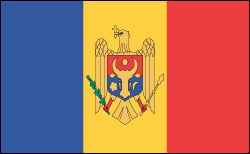- / Countries of the World
- / history
Moldova History

Index
Independence Leads to Political and Financial Unrest
Conflict between ethnic Romanians and the Russian-Ukrainian majority in Trans-Dniester erupted upon independence. Trans-Dniester separatists (primarily ethnic Russians and Ukrainians) fought for independence from Moldova in 1992; about 1,500 died in the conflict. Unrest continues in Trans-Dniester, which has become a lawless haven for smuggling and other criminal activity. In the south, Gagauz, which is composed mostly of Turkic Christians, has also attempted secession.
The Russian financial crisis in fall 1998 severely affected Moldova, which relied on Russia for 60 percent of its foreign trade. Economic disaster caused an exodus of an estimated 600,000 Moldovans. Moldova is considered the poorest country in Europe. In Feb. 2001, the Communist Party won an overwhelming victory in parliamentary elections, and its leader, Vladimir Voronin, became prime minister. Voronin has attempted to forge closer relations with Moscow, thus sparking protests among those who advocate for closer cultural and ethnic ties to Romania.
In parliamentary elections in March 2005, the Communist Party—formerly aligned with Russia but recently becoming more pro-Western—won 46% of the vote. In April, President Voronin was reelected president, and he in turn reappointed Prime Minister Vasile Tarlev.
On March 19, 2008, Prime Minister Vasile Tarlev resigned unexpectedly, saying that he had achieved his goals and he felt it was time for new blood in government. President Vladimir Voronin nominated a new candidate for prime minister, Zinaida Greceanii.
